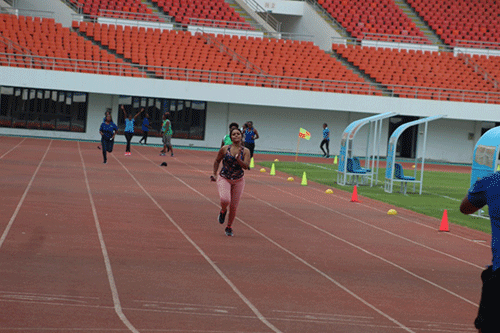The coastal town of Swakopmund will be the centre of attraction this weekend when the town hosts the second edition of the United Nations Africa Games.
The games will commence tomorrow and end on Saturday, 23 September, at the Vineta Stadium in Swakopmund.
The exciting event is jointly organised by the United Nations in Namibia and the Namibia Federation of Staff Association (NAM-FUNSA).
This also marks the return of the games since the event was last held in 2019 in Lusaka, Zambia. The games will see participants compete in sports, such as athletics, basketball, chess, darts, golf, football, netball, swimming, tennis and volleyball.
According to the organisers, the event is aimed at bringing together UN staff and their families from various countries as well as uniting for a celebration of sports, camaraderie and cultural exchange.
Apart from promoting physical fitness and friendly competition, the UN Africa Games also present a unique opportunity for the private sector. Companies can seize the chance to enhance their brand visibility, boost sales and engage in Corporate Social Investment initiatives.
By aligning themselves with this prestigious event, businesses can demonstrate their commitment to promoting a healthy lifestyle and supporting the United Nations in its mission to create a better world for all.
Speaking to this publication, Netumbo Mathilde Aukongo (UN Games committee member) said “The UN Africa regional was initiated with the goal that games play a vital role in strengthening relationships among the staff in UN offices and agencies across various country offices, which, in turn, maximises the UN’s overall productivity. The aim and objectives of the UN Games do not only target sports activities but also advocate for unity and shared harmony in country teams through showcasing diverse cultural heritage, songs and dance performances. The UN Games are also a physical networking and partnership-building activity among UN staff from different countries across the world,” she said.
In terms of how important the event is, she said, “Each country is expected to wear their cultural attire and have a performance to showcase their diversity. Imagine, Namibia, with its diversity! This is a way to embrace various cultures – not only for Africa (remember, we have other staff members from non-African countries),” she added.



